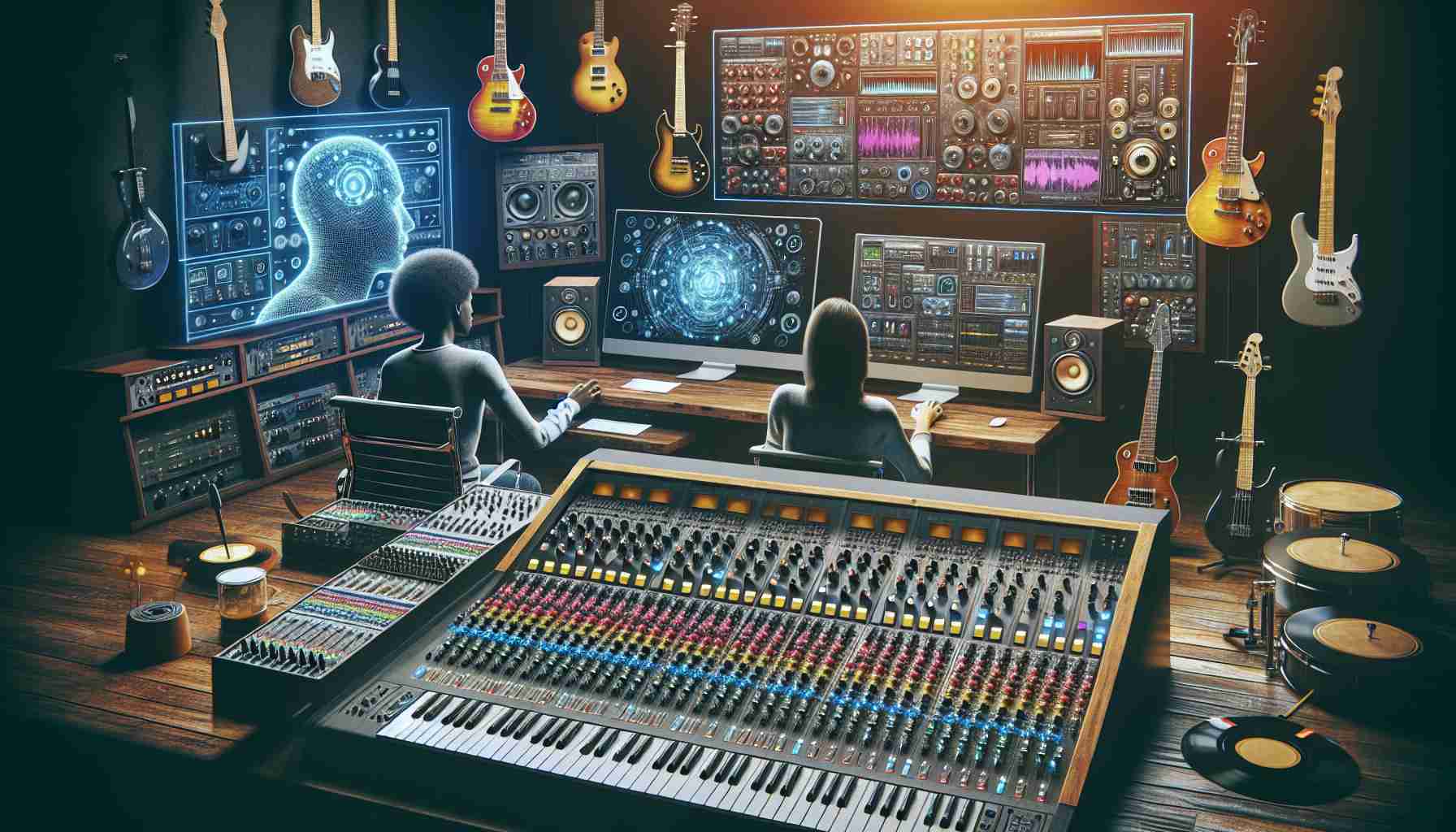Music maestro AR Rahman recently made headlines by utilizing artificial intelligence (AI) to recreate the voices of late singers Bamba Bakya and Shahul Hameed for a song featured in the film ‘Lal Salaam’. While his effort received praise for invoking nostalgia through technology, it also faced criticism from certain quarters, with accusations of being ‘gimmicky’ and potentially leading to job losses. In an exclusive conversation with IndiaToday.in during the music launch of ‘The Goat Life’, Rahman defended the use of AI in the music industry, emphasizing its potential as a tool for advancement rather than a threat to employment.
Rahman reminisced about the early days of computer technology, sharing how the arrival of computers in the music industry was met with skepticism and fear of losing jobs. However, he highlighted the importance of realizing that technological advancements are not sudden but rather an ongoing process. “It’s like every day a surprise is happening (in technology) and it’s definitely not sudden,” Rahman remarked. Acknowledging the coexistence of traditional methods and AI, he suggested that AI could be a means of uplifting the industry rather than replacing human creativity.
The legendary musician envisioned a world where AI could help eradicate generational limitations and empower individuals, particularly those from disadvantaged backgrounds, in the fields of art and science. He emphasized that with access to AI tools, individuals no longer need to invest years in studying, as what once required four to five years can now be achieved promptly. This opens up opportunities to nurture and educate new leaders in various fields.
Addressing concerns about job security for creative professionals, Rahman suggested a positive approach. Instead of viewing AI as a threat, he advocated for utilizing it to improve lives and nurture talents. As leaders and employers, he emphasized the importance of being cautious and ensuring that no one loses their job. Rather than replacing individuals, AI can assist in tasks that require time, freeing up creative minds to explore new heights. In the realm of art, for example, AI can ease the journey of production and enable artists to take their work to a different level.
Rahman’s insights highlight the need to view AI as a tool for progress, not as a cause for concern. By embracing innovation and leveraging AI’s capabilities, the music industry and other creative sectors can experience growth and advancement while preserving and uplifting the human element. It is a call to utilize technology to step up and accelerate creative processes, rather than displacing individuals.
Frequently Asked Questions (FAQ)
- What is AI in the music industry?
- How can AI uplift the music industry?
- What are the concerns about AI in the music industry?
- Can AI replace human musicians?
AI, or artificial intelligence, in the music industry refers to the use of advanced technologies to enhance the creation, production, and distribution of music. It involves utilizing algorithms and machine learning to automate certain tasks, generate musical compositions, analyze data, and more.
AI can uplift the music industry by introducing new possibilities and streamlining processes. It can assist in generating music, enhancing production, analyzing audience preferences, and supporting creative decision-making. Additionally, AI can provide access to tools and resources that were previously out of reach, enabling aspiring musicians and producers to explore their talents.
Some concerns surrounding AI in the music industry include fears of job displacement, loss of human creativity, and a potential shift towards a more formulaic approach to music production. However, proponents argue that AI can be used as a complementary tool to augment human creativity and efficiency, rather than replacing human involvement entirely.
While AI can simulate certain aspects of music creation and performance, it cannot wholly replace the depth of human musicianship, interpretation, and emotion. Human musicians possess unique qualities that cannot be replicated by machines, such as intuition, empathy, and cultural context. AI should be seen as a tool to enhance the creative process, not as a substitute for human musicians.
Sources:
https://www.indiatoday.in
Frequently Asked Questions (FAQ)
- What is AI in the music industry?
- How can AI uplift the music industry?
- What are the concerns about AI in the music industry?
- Can AI replace human musicians?
AI, or artificial intelligence, in the music industry refers to the use of advanced technologies to enhance the creation, production, and distribution of music. It involves utilizing algorithms and machine learning to automate certain tasks, generate musical compositions, analyze data, and more.
AI can uplift the music industry by introducing new possibilities and streamlining processes. It can assist in generating music, enhancing production, analyzing audience preferences, and supporting creative decision-making. Additionally, AI can provide access to tools and resources that were previously out of reach, enabling aspiring musicians and producers to explore their talents.
Some concerns surrounding AI in the music industry include fears of job displacement, loss of human creativity, and a potential shift towards a more formulaic approach to music production. However, proponents argue that AI can be used as a complementary tool to augment human creativity and efficiency, rather than replacing human involvement entirely.
While AI can simulate certain aspects of music creation and performance, it cannot wholly replace the depth of human musicianship, interpretation, and emotion. Human musicians possess unique qualities that cannot be replicated by machines, such as intuition, empathy, and cultural context. AI should be seen as a tool to enhance the creative process, not as a substitute for human musicians.
Sources:
The source of the article is from the blog newyorkpostgazette.com

